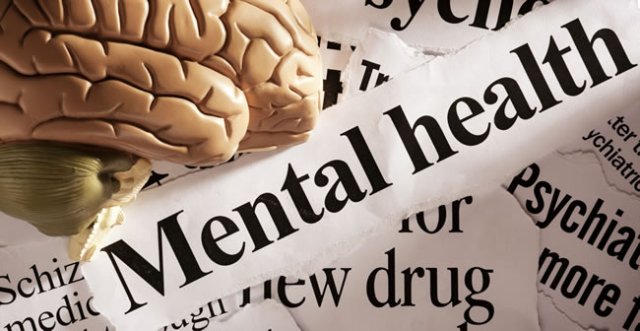By Eric Appah Marfo
Accra, May 31, GNA – Dr Daniel Adjei, a Mental Health Professional, has urged Ghanaians to confront stereotypes associated with mental health by speaking out and seeking professional help when in need.
Delivering a keynote address at the maiden edition of the Mental Health Forum (MHF 2025) held in Accra on Saturday, Dr Adjei underscored the urgent need to prioritise mental health in national discourse, stressing that “there is no health without mental health.”
He described the theme:“Beyond Stigma – Changing the Mental Health Narrative in Ghana,”as not merely a slogan, but a national call to empathy, compassion, and decisive action.
“As a psychiatrist and a teacher, I’ve sat with many, both old and young, who carry burdens the world refuses to see,” Dr Adjei said.
“Some speak through tears. Others sit in silence and many wear their pain behind a smile, pretending to cope in a society that often tells them to be strong or play harder.”
He said mental illness should not be misconstrued as a curse, weakness or moral failure, but recognised as a medical condition akin to malaria or diabetes, which deserved urgent, dignified, and respectful care.
Dr Adjei revealed that over two million Ghanaians currently lived with mental health conditions, yet only a fraction received appropriate care due to the limited number of facilities and professionals, and the overwhelming barrier of stigma.
He called for open dialogue, improved access to mental health services, and policy reforms to make care accessible and affordable.
He emphasised the need for sustainable funding, integration of mental health education in schools, and mental wellness promotion in workplaces.
“Our children must learn about mental health as a normal part of life. No child should be allowed to grow up thinking that the pain they carry is a crime or a weakness,” he noted.
“And at our workplaces, we must see those places as places well enough to be recognised and protected and shouldn’t be ridiculed or punished.”
Dr Adjei encouraged Ghanaians to use the country’s strong community, cultural and religious networks as tools for healing rather than stigmatisation.
Ms Jahara M. Osman, Founder of the Premier Rehabilitation Centre and Convener of MHF 2025, in her welcome address, said the event was birthed out of a personal desire to create space for honest conversations around mental health.
Sharing her experience of living with Attention Deficit Hyperactivity Disorder (ADHD), she described as challenging having to navigate life with a neurodivergent condition in a society that often misunderstood such experiences.
“For a long time, I thought the chaos in my brain was normal. I only realised how calm the world could be after receiving my first dose of treatment. That is when I knew I had been surviving, not living,” she said.
Ms Osman said mental health was not always a disease but a form of neurodiversity that required understanding and support rather than judgment.
She called for increased awareness, particularly among parents in rural communities, to recognise early signs of neurodevelopmental conditions such as ADHD and autism in children.
“If I, born in Kumasi into a relatively privileged home, struggled to get help, how much more someone in a deprived village in Bawku? We must educate our mothers because they see the signs before anyone else does,”she added.
Ms Osman expressed concern over the mental health struggles among students and the elderly, highlighting conditions such as depression, anxiety, and Alzheimer’s,which often went unaddressed.
The MHF 2025, Ghana’s pioneering national event dedicated to mental wellness, is organised by the Premier Rehabilitation Centre to elevate the conversation around mental health, break stigma, and bridge the gap between awareness and action.
The Forum offered a brave space for open dialogue, expert insight, personal storytelling, and collective healing.
Its objectives include raising awareness of mental health realities in Ghana, promoting education and tools for wellness, fostering open dialogue and collaboration among stakeholders, and empowering youth voices.
It also aims to support access to mental health services through post-event outreach programmes.
GNA
Agnes Boye- Doe
